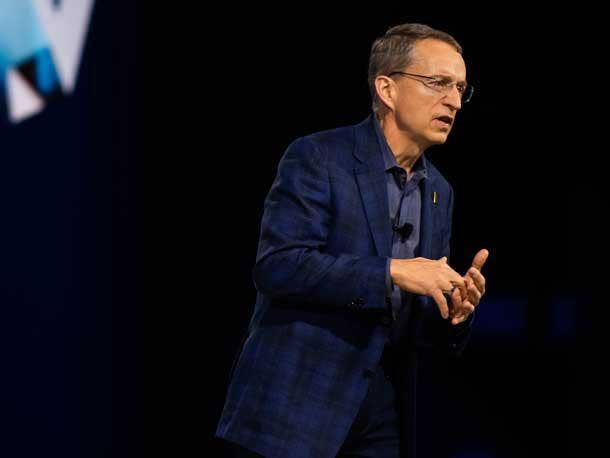Pat Gelsinger On Intel Axing Tower Acquisition: We’ll ‘Work Together In the Future’
Intel’s $5.4 billion planned acquisition of chipmaker Tower Semiconductor has failed, dealing a major blow to the company’s bullish foundry strategy as well as a $353 million termination fee.

Intel CEO Pat Gelsinger
Intel is paying a $353 million termination fee to leave its agreement to acquire fellow chipmaker Tower Semiconductor after 18 months of trying to close the deal. The move is a major blow for Intel’s foundry hopes and plan to tap into Tower’s customer base.
Santa Clara, Calif.-based Intel canceled its blockbuster $5.4 billion deal to buy the Israel-based company due to the inability to obtain the regulatory approvals required under the merger agreement.
Intel CEO Pat Gelsinger said in a statement that Intel’s “respect” for Tower has grown since his company first announced its planned acquisition in February 2020.
“Our respect for Tower has only grown through this process, and we will continue to look for opportunities to work together in the future,” said Intel’s CEO.
[Related: Intel Regain On PCs, Loses In Servers Against AMD In CPU Market Share]
Last year, Gelsinger said buying Tower would boost Intel’s foundry businesses, which refers to companies that make semiconductors for customers on a contract basis. Intel had hoped to merge its semiconductor manufacturing plants with Tower and tap into its customer base, including large customers like Broadcom.
“Our foundry efforts are critical to unlocking the full potential of IDM 2.0, and we continue to drive forward on all facets of our strategy,” said Gelsinger. “We are executing well on our road map to regain transistor performance and power performance leadership by 2025, building momentum with customers and the broader ecosystem and investing to deliver the geographically diverse and resilient manufacturing footprint the world needs.”
Why Did The Intel-Tower Deal Fail?
The deadline for Intel’s purchase of Tower was midnight on Aug. 15.
Intel’s press release failed to mention which regulatory authorities didn’t approve the deal.
However, Bloomberg reported that Chinese authorities did not give approval of the deal by the deadline.
There has been an increase of tension in recent years between the U.S. and China, which has made it more difficult to approve technology acquisitions that need local regulators to sign off on deals.
Intel Foundry Services Up 300 Percent In Q2 2023
Last month, Intel reported its financial earnings for its second-quarter 2023.
Intel reported its foundry services business increased 300 percent in revenue year over year in second-quarter 2023.
“Since its launch in 2021, Intel Foundry Services has gained traction with customers and partners, and we have made significant advancements toward our goal of becoming the second-largest global external foundry by the end of the decade,” said Stuart Pann, senior vice president and general manager of Intel Foundry Services, in a statement.
“We are building a differentiated customer value proposition as the world’s first open system foundry, with the technology portfolio and manufacturing expertise that includes packaging, chiplet standards and software, going beyond traditional wafer manufacturing,” he added.
For second-quarter 2023, Intel generated $12.9 billion in revenue, a decrease of 15 percent year over year. The company reported net income of $1.5 billion for the quarter and $2.8 billion in cash from operations.